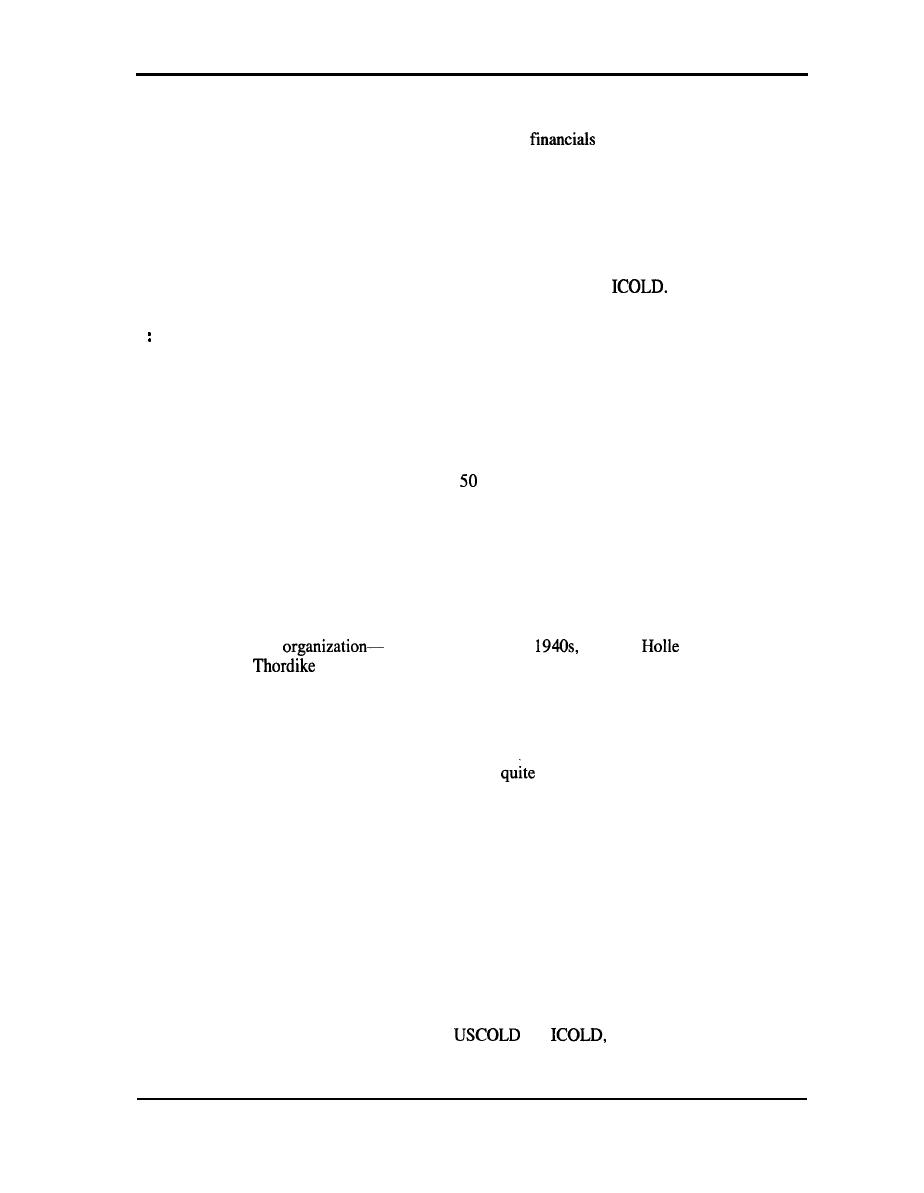
Engineer Memoirs
The University of Maryland paid me as a professor, but the lectures and the boards of the
University of Vermont and West Point are not remunerative. In fact, they rarely pay expenses,
is that it does distract from the
but that's not the point. The reason I mention the
things I do that generate money, which can be used to do the nonpaying work. So, as long as
I can, I'll continue to participate in passing on, within academia, experiences and lessons I've
learned. I see a need to develop leaders, not only of engineering but engineers who take
leadership positions in government. We're not as well represented as we should be, and
unfortunately many of our major construction companies are being managed by nonengineers.
Q ..
We discussed a little bit your involvement in other professional organizations, but I think there
are several we haven't talked too much about, like PIANC and
You've continued to
be involved with professional societies, as well.
Well, yes. My experiences and associations while in the service with professional engineering
A
organizations supported the logic of retaining my association with them. PIANC is one of my
favorites. It's not an organization of people so much as it's an organization of countries, and
therefore it's a very pleasant annual event when you go to the meetings and, every four years
or so, to their congresses. You're really the guest of the country.
Aside from the social and the pleasantry aspects, the professional features are very good
because PIANC is truly an outstanding professional organization. It's the oldest continuously
country members are represented by individuals
operating professional organization. Its
who are in important positions either in government or in the educational field in the area of
water transportation and affiliated structures.
While the United States has the largest individual membership in PIANC, it also has one of
the weakest organizational structures. That's been overcome in the last 15 or 20 years because
of some good work by a few people. Dwayne Koch, the U.S. PIANC coordinator under the
director of Civil Works in the Corps has kept PIANC activities in front of the membership and
encouraged them to become more active. The U.S. has maintained a leadership position in the
international
General Casey in the
General
in 195 1, General
Heiberg,
Seville, to name a few.
One other thought on PIANC. I was elected as one of the first four international vice
presidents. For years, there were no international vice presidents, but as the organization got
bigger it became more difficult for the president to manage it. So the organization was redone,
and Sir William Harris of Britain and I worked on that task. I was very pleased with having
had a part in it, and also the results have been
rewarding.
One interesting event occurred in the first year I attended in Sicily in 1972. We were so much
in the environmental program back in the United States, and I made a motion that a
commission be established to evaluate the effect of navigation structures on the environment.
I did not get a single supporting vote outside of the U.S. delegation. No one felt the subject
was sufficiently important to establish a commission, which means a four-year study.
The next year we had a congress in Ottawa, Canada, and early in the affairs the leader of the
Russian group to PIANC came to me and said, "If you'd move again to establish a commission
to evaluate environmental effects of navigation, our delegation will support you." So I boldly
stepped forward and made the motion a second time. It carried unanimously. In the course of
one year, something happened. In any event, PIANC became active and remains an active
exponent of the environmental impacts of navigation structures.
Beyond PIANC, the large dams groups,
and
were important professionally.
I wanted to be a voice for the Corps in a different sort of way in these professional
210



 Previous Page
Previous Page
